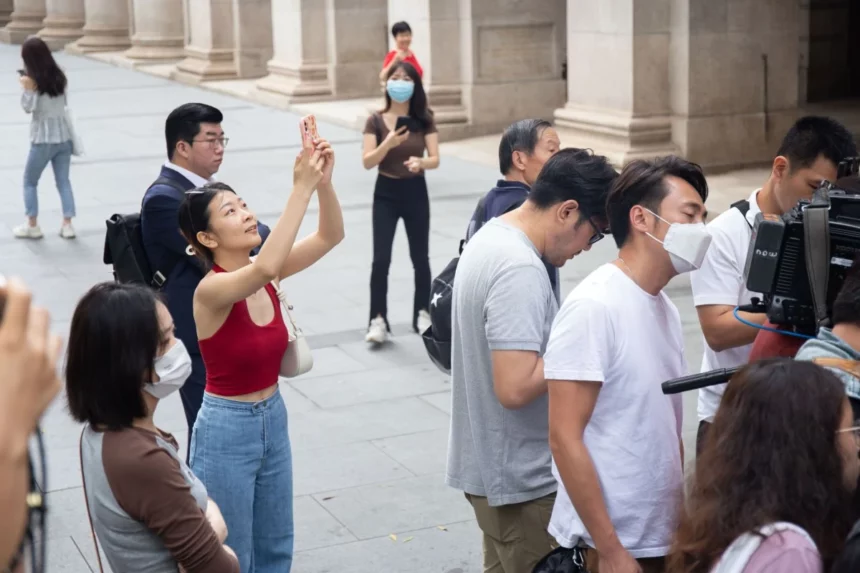Hong Kong courts have become popular tourist spots among mainland Chinese visitors, but some appear to have overlooked the law by snapping pictures inside the premises, the Post has found. Over the past nine months, accounts on the social media platform Xiaohongshu have posted photos of courtrooms in the High Court and shared tips on visiting these buildings and observing judicial proceedings.
One user posted an image of a courtroom entrance in July, expressing her fascination with Hong Kong’s legal and crime dramas and her interest in visiting the High Court. She noted the contrast between real-life lawyers and their dramatic portrayals on TV and acknowledged the rules prohibiting photography inside the courtrooms.
Since the border reopened in early 2023, more mainland tourists have been spotted in local courts. A Post reporter observed a Mandarin-speaking couple attempting to photograph the Hong Kong Bar Association’s office inside the High Court last year. The couple stopped and left the building after being reminded of the relevant rules.
According to the Summary Offences Ordinance, anyone who takes or publishes any photo in court can face a HK$2,000 (US$260) fine. Video and audio recordings inside the court are also prohibited. In June 2018, a mainland visitor was found guilty of criminal contempt of court for taking and uploading photos during a court hearing. She was sentenced to seven days in jail and ordered to pay HK$197,260 in legal fees.
The judiciary has implemented measures to address these issues, including broadcasting reminders inside the courtrooms, putting up more signs, deploying extra security guards, and banning the public from using mobile phones or devices capable of taking photos or videos during jury trials.
The Court of Final Appeal in Central, a declared monument known for its Neoclassical architecture, is another photogenic spot popular among mainland tourists. A Xiaohongshu user in April uploaded 13 photos of the Court’s exterior, noting its use as a filming location for TV dramas.
Barrister Albert Luk Wai-hung explained that taking photos inside the court, including corridors and toilets, is strictly banned for reasons such as protecting the identity of the jury and witnesses. Luk said security guards are trained to monitor visitors in the public gallery and that they first warn offenders before involving law enforcement if necessary.
Lawmaker Paul Tse Wai-chun, also a lawyer, noted that Hong Kong’s legal system appeals to mainlanders because of its distinctive characteristics, such as judges and lawyers wearing wigs. He suggested that the judiciary could enhance enforcement and consider an observation appointment system or live broadcasting trials if needed.
The judiciary emphasized that open justice is essential for public confidence and upholding the rule of law. They continue to remind visitors of the rules through broadcasts in multiple languages and notices online and on the premises.

